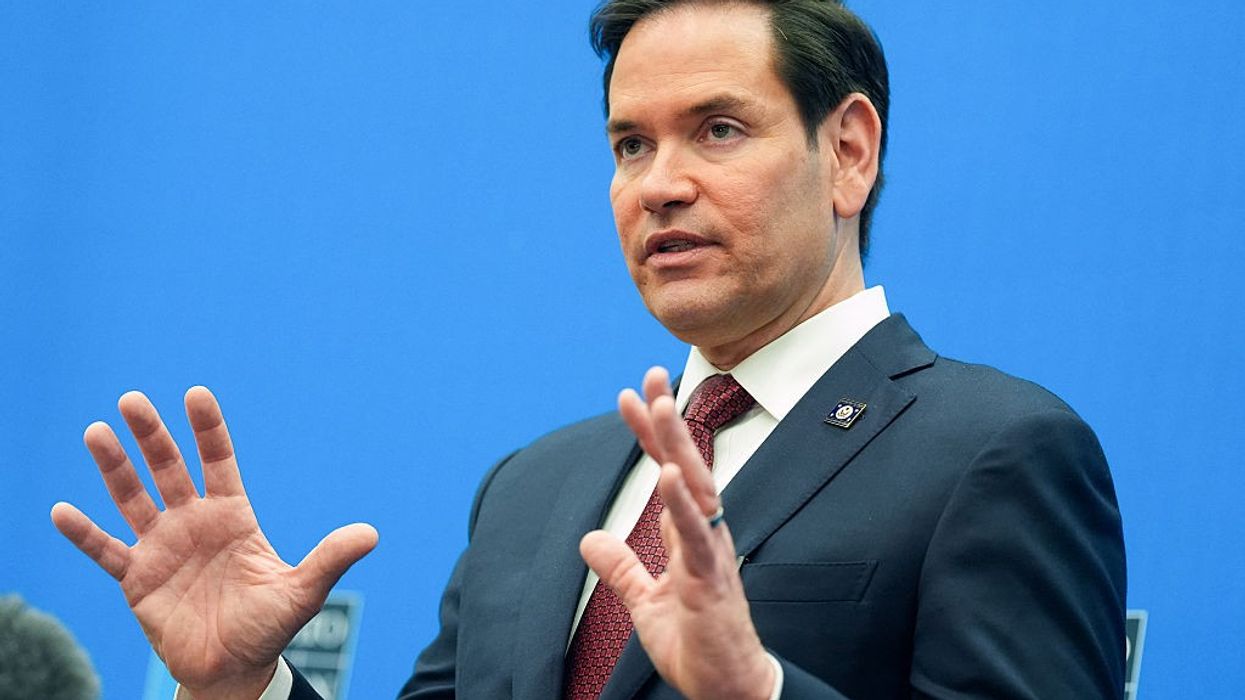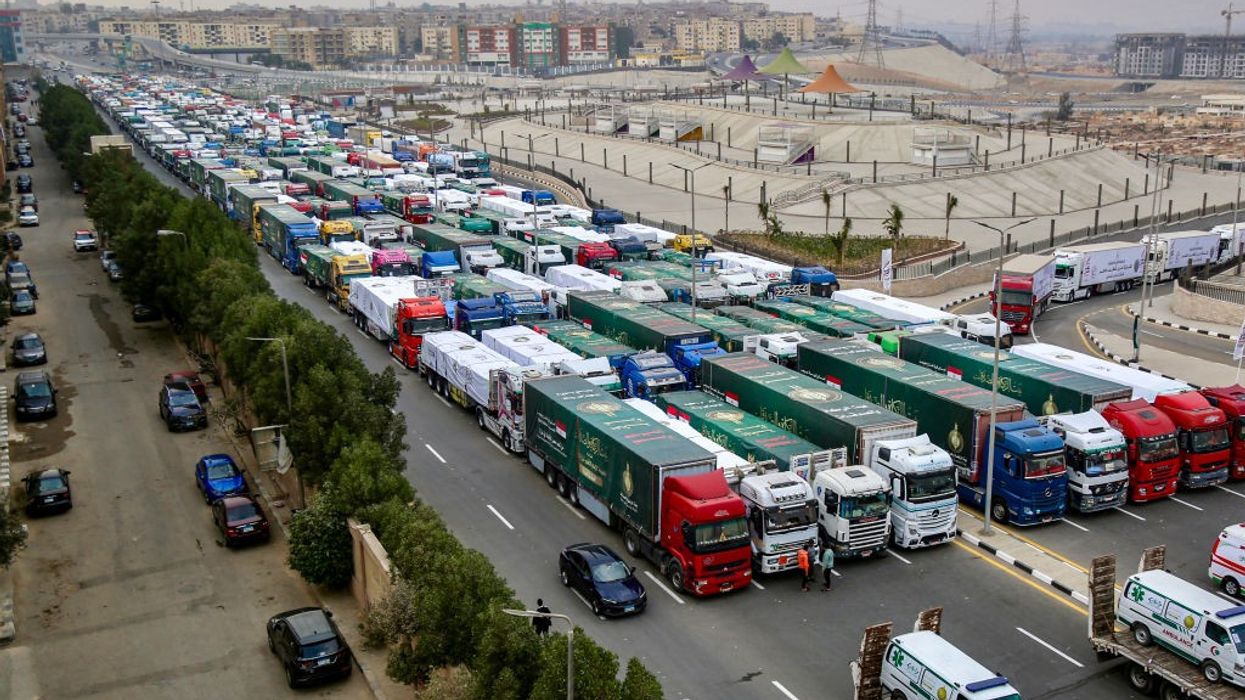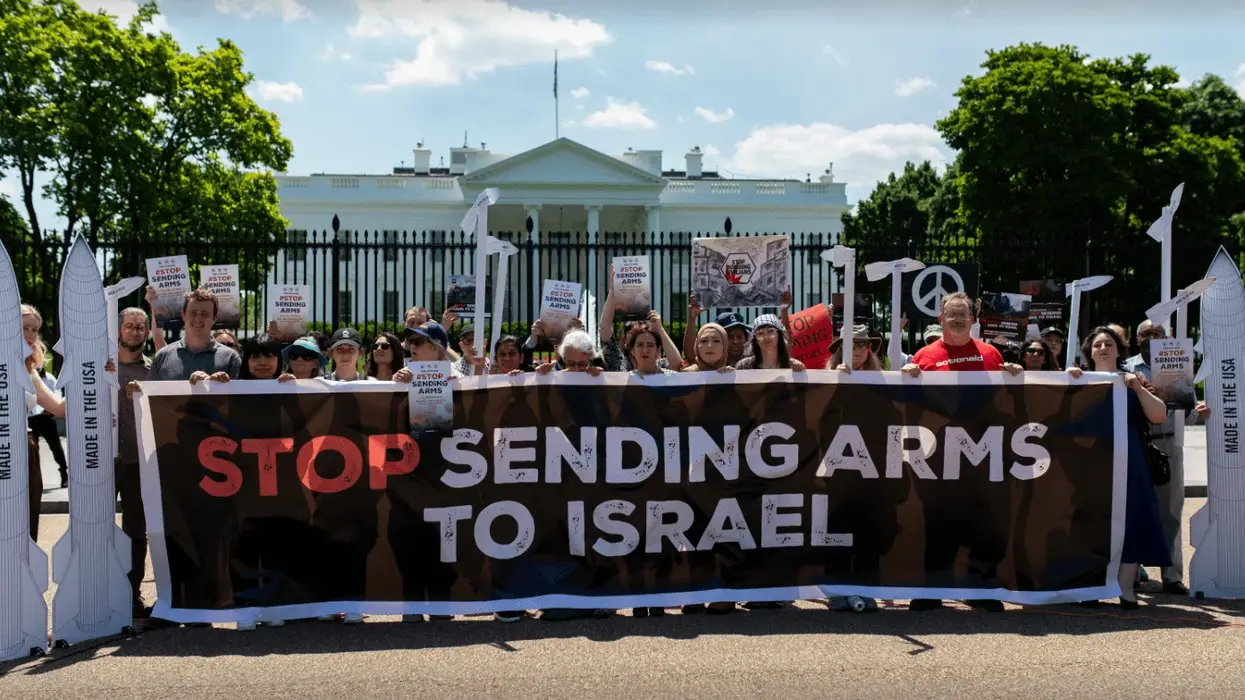Critics Decry Rubio's 'Deeply Unserious' State Department Overhaul Plan
One observer called the proposal "nothing less than an assault on American diplomacy."
Secretary of State Marco Rubio's plan to streamline what he called the "bloated" State Department by slashing staff and closing or consolidating bureaus was widely criticized Tuesday as a dangerous retreat from diplomacy and soft power that would weaken U.S. standing abroad and boost adversaries.
"In its current form, the department is bloated, bureaucratic, and unable to perform its essential diplomatic mission in this new era of great power competition," Rubio said in a statement. "Over the past 15 years, the department's footprint has had unprecedented growth and costs have soared."
"But far from seeing a return on investment, taxpayers have seen less effective and efficient diplomacy," he added. "The sprawling bureaucracy created a system more beholden to radical political ideology than advancing America's core national interests. That is why today I am announcing a comprehensive reorganization plan that will bring the department into the 21st century."
Marco Rubio says the State Department has been “beholden to radical political ideology.” Also known as democracy.
[image or embed]
— Mark Jacob ( @markjacob.bsky.social) April 22, 2025 at 9:45 AM
Rubio's proposal includes a 15% department-wide staff reduction, the elimination of 132 of the agency's 734 bureaus and offices, and the consolidation of many others, according to reports. Bureaus and programs expected to be eliminated or merged include the Office of Global Women's Issues; the war crimes and civilian protection divisions; and the agency's diversity, equity, and inclusion efforts, which have been banned throughout the executive branch. The position of special climate envoy will also be eliminated.
The Office of Civilian Security, Democracy, and Human Rights is slated to be replaced by a new division for the coordination for foreign assistance and humanitarian affairs that will assume responsibilities once shouldered by the embattled U.S. Agency for International Development. Already under siege by Elon Musk's Department of Government Efficiency, USAID is reeling from Rubio's announcement last month that the vast majority of its programs would be canceled.
Christopher Le Mon, a former senior department official during the Biden administration, told The New York Times Tuesday that the plan's human rights scaleback "sends a clear signal that the Trump administration cares less about fundamental freedoms than it does about cutting deals with autocrats and tyrants."
In a Substack post published Tuesday, Rubio accused the Bureau of Democracy, Human Rights, and Labor of becoming "a platform for left-wing activists to wage vendettas against 'anti-woke' leaders" and the Bureau of Population, Refugees, and Migration of funneling "millions of taxpayer dollars to international organizations and NGOs that facilitated mass migration around the world, including the invasion on our southern border."
Responding to this, Brandon Wu, director of policy and campaigns at ActionAid USA, said that "Secretary Rubio's rant against the Bureau of Democracy, Human Rights, and Labor as the carrier of a leftist agenda lays the administration's intentions bare: Their decimation of the State Department is part of an unhinged crusade against perceived 'woke' policies and practices, not a coherent plan for reform."
"The idea that any part of the State Department was supporting an 'invasion' of the U.S. southern border is similarly ludicrous," Wu added. "The proposed staff reductions at the State Department, when taken in conjunction with the dismantling of USAID, will hamper the diplomatic engagement with the rest of the world. This is a deeply unserious proposal that will not make the U.S. safer or stronger."
"Trump has said he wants to be a president who ends wars, but moves like this will make that much more difficult."
Dylan Williams, vice president for government affairs at the Center for International Policy, a Washington, D.C.-based think tank, called Rubio's plan "nothing less than an assault on American diplomacy" that will "further decimate U.S. influence and standing in the world, undermining our fundamental security and other critical interests."
"Coupled with the administration's intention to dramatically increase military spending, this decimation of the State Department also serves as a clear indication that it is prioritizing militarism over diplomacy," Williams said. "Donald Trump has said he wants to be a president who ends wars, but moves like this will make that much more difficult."
Democratic lawmakers also condemned Rubio's proposal, with Sen. Jeanne Shaheen (D-N.H.), the ranking member of the Senate Foreign Relations Committee, asserting that "any changes to the State Department and USAID must be carefully weighed with the real costs to American security and leadership."
"As I and many of my Democratic colleagues have made clear, we welcome reforms where needed—but they must be done with care," she continued. "Elon Musk and his team have engaged in a slash-and-burn campaign targeting federal employees, terminating critical programs at State and USAID, undermining our allies, and diminishing American leadership in the world."
"A strong and mission-ready State Department advances American national security interests, opens up new markets for American workers and companies, and promotes global peace and stability," Shaheen added. "It remains to be seen how the administration's latest proposals will achieve that goal."
Rep. Gregory Meeks (D-N.Y.), the ranking member of the House Foreign Affairs Committee, warned that Rubio's proposed reorganization "would leave the State Department ill-equipped to advance U.S. national security interests."
"The vital work left on Secretary Rubio's cutting-room floor represents significant pillars of our foreign policy long supported by Democrats and Republicans alike, including former Sen. Rubio—not 'radical ideologies' as he now claims," Meeks added. "Retreating from this work will further erode our national security and undermine our influence on the world stage."


